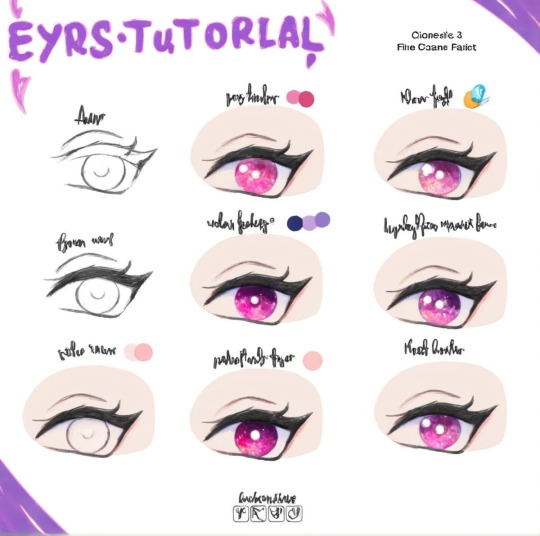#tutorialsresources
Explore tagged Tumblr posts
Text

#csp#illustrationdigital#tutorial#photoshop#drawingdigital#paintingillustration#clipstudiopaintart#characterdesign#clippaintstudio#clipstudiopaint#lineartcoloring#digitalart#digitalpainting#mangaanime#tutorialhowto#ai#aiart#eyestutorial#digitalartist#digitalartworks#anime#referencesheet#tutorialsresources#painttoolsai2#stepbystep#howtodrawmanga#drawingtutorial#eyes#painttoolsai#howtodraw
0 notes
Note
This might be a silly question, I know... I'm just starting out with digital painting and I can't for the life of me figure out if I'm doing shading and lighting right. It seems like something I should innately know but I'm second-guessing myself all the time. Do you know of any nifty tricks or helpful tutorials? All I've found are on shading and shadows using simple shapes and I'd really prefer something using an actual face and/or body.
no question is silly esp something like this!! but remember i’m self taught/only just starting school so… figuring out what catches light or makes a shadow can be rly hard. like many people will tell you, your first go-to should be real life. use a lamp or some light source, and hold it around your own body (HONESTLY i never did this until school taught me so.. i promise it helps a lot) and see what the lights and shadows look like. although dramatic, it can show you where your darkest shadows would be, and your lightest points (keep in mind that if you want something less dramatic, turn on the lights or s/t)simple shapes r important tho!! simple shapes make up almost everything—by using shapes, you can break complex things down and then chisel away at your “blocked out” figure. i know these simple shapes aren’t the complex bones and curves of the human body, but i PROMISE you, studying them is rly important. understanding value is super fundamental (which is why grayscale is SUPER GOOD for that kind of practice)if you’re really bent on not using simple shapes (not a good idea tbh) and you want to know how light and dark work on, say, a human head, you’re going to need to know the anatomy a lot. like a lot lol… i still don’t have anatomy down whatsoever (i have the class thursday actually!) but i can tell you that knowing the body and how it moves will help you in determining light and dark values.digital tutorials are great!! but i highly suggest going to ur roots and looking at traditional tutorials even if you won’t be practicing with a pencil (u can just use ur tabby pen altho as u no it won’t feel like a real pencil). BUT digital tutorials r still good.. i just find more on fundamentals via traditional videos but it could just b where i look n there are actually better ones out there (followers??? pls post ur own suggestions??) i’m not good with advice… so i’ll just straight out show u the tutorials i studied for a while:shading for beginners (3:46 for Light on Form)how to shade (he’s gr8 and discusses stuff like core shadows—enjoy his accent too!)skin shading (traditional sketch going into digital)if you can’t tell, getting away from shapes in tutorials is kind of impossible bc shapes make up everything else you’re wanting to draw ‘-’ it’s annoying i know… SHAPES„„ WHY???? but i promise u 100% that you want to study and practice this. also, my biggest tip/trick is REFS and using your own light source on urself to see how it works. reffing real life/real life people/whatever ur wanting to draw will be your best bet. look at how the shadows work around muscles n bones… soon you’ll start to realize there r general shapes to the body, and you’ll begin to memorize what goes where and why (this bone is by this so i know there should b a shadow here… and if you practice your anatomy this will B EVEN EASIER. that way you know the general shape of the bone, and that will help you know how the shadow works on it [depending on light source])sorry if that wasn’t much help… i tried n this is all i know and use:c
#i am so bad w advice im so sorry#i want 2 help so much but im bad with words and im also not a professional lma OTL#I HOPE IT HELPED A LITTLE THO???#q&a#tutorialsresources#Anonymous
12 notes
·
View notes